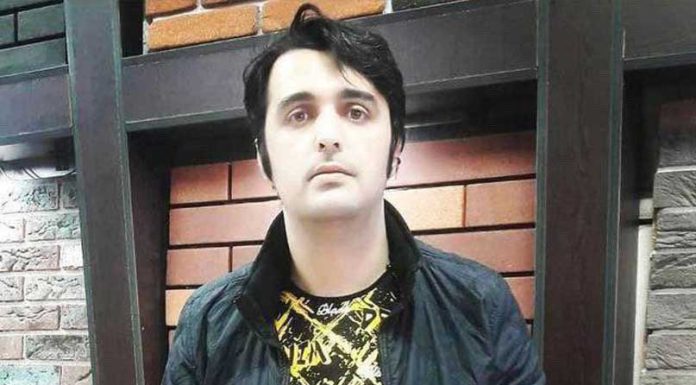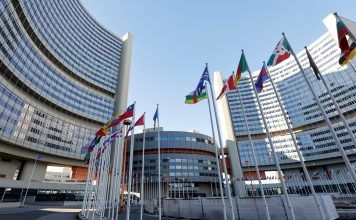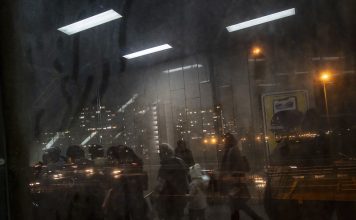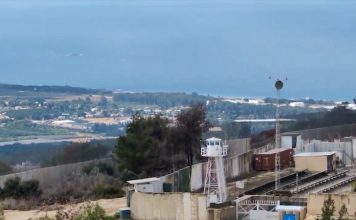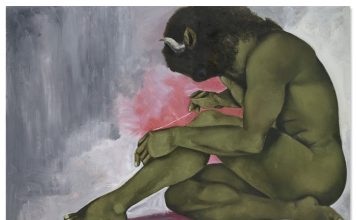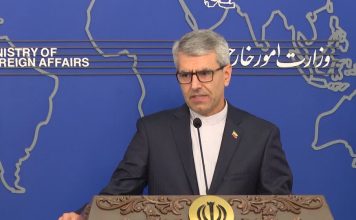By Kayhan Life Staff
A revolutionary court in Sari, capital of the northern province of Mazandaran, has handed three death sentences to Javad Rouhi, a 35-year-old man arrested during the recent nationwide protests.
The protests, which were sparked by the death of Mahsa (Zhina) Amini, a 22-year-old woman who died in the custody of the morality police on Sept. 16 in Tehran, have morphed into a revolutionary movement calling for regime change in Iran.
Iran’s Regime ‘Built on Repression, and Women Its First Target,’ UN Expert Says
Iran Regime’s ‘Death Committee’ President Unyielding in Defence of Clerical Rule
Mr. Rouhi was arrested in Amol, a city in Mazandaran Province, and charged with “enmity against God,” “spreading corruption on earth,” “setting fire to a traffic police station,” and “burning a headscarf,” none of which are capital crimes. Yet he was given three death sentences for those convictions.
Besides being charged with “setting fire to a traffic police station, banks and government and military buildings,” and “being a leader and organizers of the unrest,” Rouhi was also convicted of participating in protests on Dec. 11, in Nowshahr, a city in Mazandaran Province.
According to the trial judge, “five members of the security forces were killed and injured” in the Dec. 11 protest. However, the prosecutor did not provide evidence to the court that Rouhi had injured or killed anyone.
“Javad Rouhi has mental health issues,” Rouhi’s public defender, Soleyman Vatandoust, previously said. “He has not set fire or destroyed any [property]. Footage has shown that he was present at the scene. but did not participate in any of the said actions.”
After his indictment, his parents released a video saying that their son’s mental state was declining and pleaded for the public to help. They explained that Javad had a history of mental health issues, and asked the public to help with his release.
Javad’s father reportedly visited him once shortly after his arrest, but has not seen or spoken to him since the trial. Some people have said that Javad Rouhi was forced to make a false confession after being tortured. According to Javad’s parents, he was receiving treatment for mental health at the time of his arrest.
Like many others who have been arrested, Rouhi has been denied a lawyer of his own choosing. The Mazandaran prosecutor’s office claims that the province “appointed a public defender to Rouhi after he failed to choose a lawyer to represent him during the arraignment and trial.”
According to the indictment, Rouhi confessed during his interrogation to “attacking a traffic police station in Azadi Square in Nowshahr with Molotov cocktails which he made, setting fire and causing serious damage to the building.”
Authorities have allegedly extracted forced confessions under torture from many people arrested during the protests. Trial judges have handed heavy sentences, including the death penalty, to several defendants, ignoring claims that they had been tortured and forced to confess to crimes they had not committed.
Quoting someone close to the Rouhi family, the Human Rights Activists News Agency (HRANA) on Jan. 10 said: “Javad’s entire confession during his interrogations was extracted under duress and physical abuse. The only evidence against Javad is his forced confession extracted during his interrogation and footage of the protest. In the video, it is impossible to see the face of the person who sets fire to a Qoran. However, the court identified Javad as the culprit, calling him an ‘apostate.’”
Iran Executions Amount to ‘State Sanctioned Killing’: UN Rights Chief
Javad Rouhi faces further charges, including “public order offense, public agitation, criminal collusion to undermine national security, blasphemy, and apostasy by insulting and burning the Qoran.”
The Mazandaran Revolutionary Court had previously sentenced two 18-year-old men to death.
Branch-1 of Sari Revolutionary Court handed two death sentences to 18-year-old Mehdi Mohammadi-Fard, accused of “enmity against God” and “spreading corruption on earth.”
A Revolution Court handed a death sentence to another 18-year-old man, Arshia Takdastan, arrested in Nowshahr on charges of “enmity against God” and “spreading corruption on earth.”
Since the start of the “revolutionary movement” in mid-September, authorities have arrested 19,200 people.
According to the Norway-based Iran Human Rights, 109 protesters are in danger of receiving a death sentence or awaiting execution, including 24 people in the southwestern province of Khuzestan, 22 in the southeastern province of Sistan and Baluchestan, and 20 in Tehran.
Authorities have executed Mohsen Shekari (23 years old), Majidreza Rahnavard (23 years old), Mohammad Mehdi Karami (22 years old), and Mohammad Hosseini (38 years old).
Mohsen Shekari was convicted of “enmity against God,” blocking a road to Tehran during the nationwide protest and allegedly injuring a member of the Basij force (volunteer militia) with a machete. He was hanged on Dec. 8.
Majidreza Rahnavard was convicted of “enmity of God” and allegedly stabbing to death two Basij members. He was publicly hanged on Dec. 12. Mr. Rahnavard was executed only 12 days after his arrest.
Mohammad Mehdi Karami was charged with “spreading corruption on earth” and allegedly killing a Basij member during protests commemorating the 40-day mourning of Hadith Najafi, a 22-year-old woman shot dead on Sept. 21 in Mehrshahr. Mr. Karami was hanged on Jan. 7.
Mohammad Hosseini was also charged with “spreading corruption on earth” and alleged involvement in the killing of a Basij member during protests commemorating the 40-day mourning of Hadith Najafi. Mr. Hosseini was hanged on Jan. 7.
While Iran’s Supreme Court has agreed with several protesters’ appeals against their death sentences, others await their uncertain fate.

